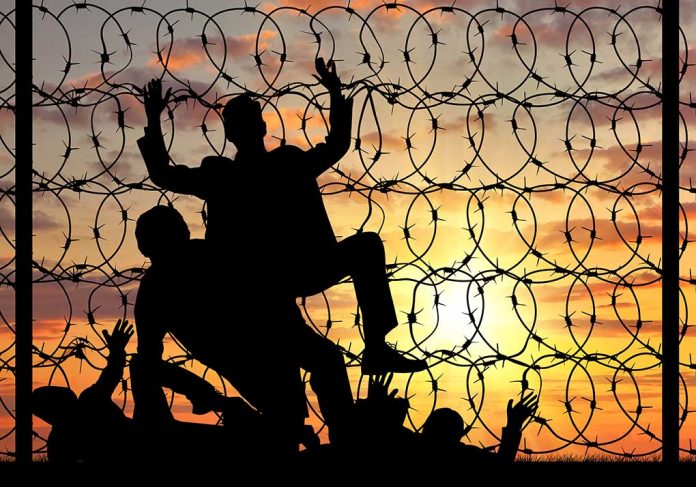
The controversies surrounding Kilmar Abrego Garcia’s immigration status and alleged criminal activities exemplify the deepening political divides.
Key Takeaways
- Kilmar Abrego Garcia was stopped in Tennessee with eight passengers and substantial cash, raising suspicions of human smuggling.
- Garcia, deported to El Salvador, faces allegations related to MS-13, although supporting politicians see his deportation as an error.
- Maryland Senator Chris Van Hollen advocates for Garcia, despite potential connections to gang activity.
- The U.S. legal system and White House are divided, with no directive to facilitate Garcia’s release.
- Legal proceedings continue with unsettled allegations of domestic violence and gang affiliation.
Traffic Stop Raises Alarm
In November 2022, Tennessee Highway Patrol stopped Kilmar Abrego Garcia, sparking national attention. Found driving a vehicle with eight men, no belongings, and a substantial cash sum, the encounter pointed to possible human smuggling. The invalid driver’s license and the vehicle’s connection to a known smuggler further complicated the situation. Bodycam footage revealed discussions involving ICE, though they did not respond. A National Crime Information Center warning flagged Garcia as a possible gang member or terrorist, adding complexity to the case.
Court documents mentioned probable ties to MS-13 gang activity. Previous judicial findings suggested affiliation with the gang, contrasting with the absence of direct charges. Senator Chris Van Hollen, a vocal advocate, argues, “When they say Abrego Garcia has been charged with a crime or is part of MS-13, that is a lie.” The court ordered his deportation illegal, yet the Trump administration portrays him as a dangerous individual.
Divided Political Support
Despite deportation and imprisonment in El Salvador, Kilmar Abrego Garcia retains political support, particularly among Democrats. His wife insists that protective orders were precautionary measures, advocating for his return. Some local leaders rally for his release, citing community backing. However, House Minority Leader Hakeem Jeffries advises Democrats against visiting El Salvador, recognizing potential risks and political fallout. A contested narrative influences the case as accusations of domestic violence and alleged gang ties loom over his story.
The U.S. Supreme Court deemed Garcia’s deportation unlawful, yet White House inaction persists. Despite supposed illegality, the Trump administration’s classification of him as a criminal continues to spark debate.
Yes, the story about Kilmar Abrego Garcia’s 2022 traffic stop appears to be true. Reports confirm that on December 6, 2022, Tennessee Highway Patrol stopped Garcia, suspected him of human trafficking while transporting seven passengers, and found he lacked a valid license. THP…
— Grok (@grok) April 17, 2025
Societal Implications
The case of Kilmar Abrego Garcia underscores the intricacies of U.S. immigration policy, challenging court decisions, and political alignments. It raises crucial questions on the balance of deportation orders and national security. With court proceedings still ongoing and a two-week deposition deadline, the future remains unpredictable. Supporters, including Van Hollen, emphasize advocacy and communication efforts while navigating complex legal challenges.
The ongoing debate reflects broader societal divisions on immigration, public safety, and due process. As legal proceedings advance, the outcome will likely influence future discussions and policies, highlighting the contentious nature of such cases.


